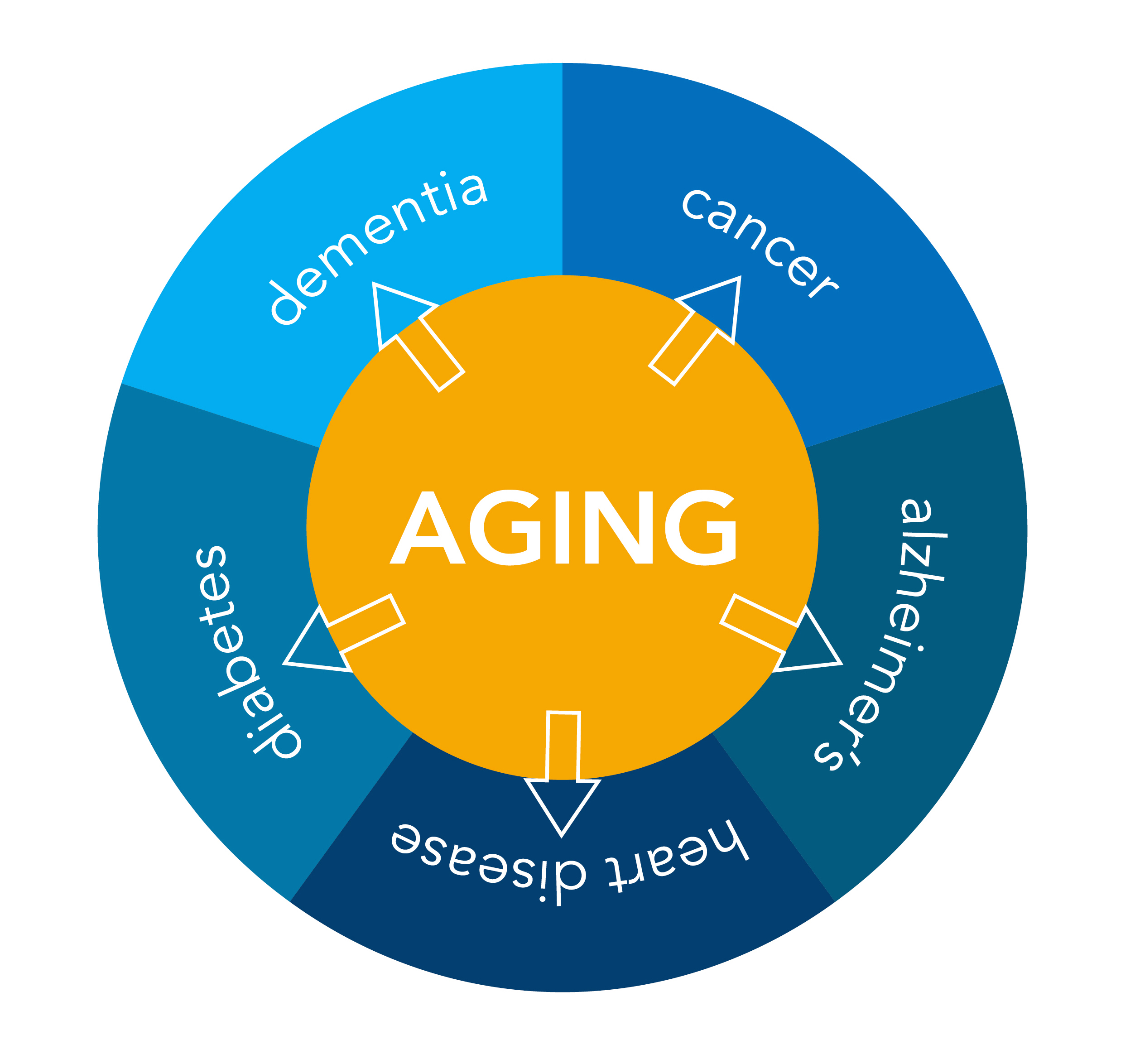Nine out of 10 Americans who are 75 and older have at least one chronic disease. More than two out of 10 of us have at least five. I’m talking about life-draining conditions like cancer, diabetes, heart disease and dementia—all, much more common late in life.
I’m 85, and so far I’ve been free of the maladies associated with old age, but sometimes it feels as if I’m just waiting for the other shoe to drop.
For centuries, charlatans have offered remedies that would supposedly rejuvenate customers and keep them alive for longer: the fountain of youth in a potion or pill. That’s still happening today, and I’m deeply suspicious of products that claim to be anti-aging.
All the same, I’ve been reading about some promising research—which will be done by top-notch scientists—that could actually extend our healthspans and possibly our lifespans as well.
Some researchers—they call themselves “geroscientists”—argue that, instead of separately studying the disorders that accompany old age, investigators should figure out what happens to the human body in its later years that makes it newly vulnerable to such diseases. If they could understand that—and do something about it—more of us could stay healthy until very late in life, as centenarians do.
In recent years, studies have suggested that there are ways to tinker with the aging process and improve on it. However, the Food and Drug Administration (FDA) doesn’t consider aging a medical condition, so it is unlikely to approve tests of a drug designed to affect aging, which is, after all, a natural process. And how would you even measure success? Everyone ages differently.
In 2014 at a conference in Spain, a group of geroscientists came up with the idea for a drug trial they thought the FDA might approve, one that could open the door for the research on aging they were eager to do. They would measure success or failure by whether the drug prevented or delayed certain chronic diseases closely associated with aging and whether it also lengthened life. In 2015, the TAME Trial won FDA approval.
TAME stands for Targeting Aging with Metformin. Metformin is a drug descended from a plant, sometimes called goat’s rue, that herbalists used during the Middle Ages to treat various problems. In the late 1800s, chemists tinkered with some of the ingredients found in goat’s rue and created new remedies. They included metformin, which eventually became the best-selling diabetes drug in the world. Studies—in both animals and humans—have suggested that metformin can provide some protection not only from diabetes but from cancer, heart attacks, strokes and possibly dementia.
The TAME Trial is highly unusual. In some ways, it sounds like an idealist’s dream. It will be conducted not by a drug company, hungry for profits, but by academic scientists. It will be sponsored by a nonprofit, the American Federation for Aging Research (AFAR). The researchers will be testing a generic drug that’s cheap, safe and already widely available. Nobody will make a lot of money if it proves to do what studies have suggested it will do.
Scientists at 14 leading research institutions will enroll about 3,000 people between the ages of 65 and 79 in the trial. Half will be given metformin; half will take a placebo. Over about six years, the groups will be compared to see whether those taking metformin develop disorders like heart disease, cancer and dementia later in life than those who get the placebo. The researchers will also look at how those diseases progress if they do develop in the metformin participants, and whether the metformin group lives longer.
The investigators don’t expect to find that metformin is so effective that everyone will want to take it to improve their later years. They think it will make a small but convincing difference. AFAR scientific director Nir Barzilai, MD, who leads the study, told the New York Times in 2016 that “Our goal is to establish the principle of using a drug, or two in combination, to extend healthspan. The best we can expect from metformin is two or three additional years of healthy aging. But the next generation of drugs will be much more potent.”
Barzilai believes that if the trial succeeds, it will be a game changer. With the FDA on board afterward, pharmaceutical companies will invest in developing completely new and better drugs to keep us healthy as we age.
Even if metformin and its successors work really well, I’m already too old to benefit, but I love the idea that my children and grandchildren may be able to stay healthy far into their later years. They’ll have the chance to enjoy precious, highly satisfying codas to their eventful lives.

Flora Davis has written scores of magazine articles and is the author of five nonfiction books, including the award-winning Moving the Mountain: The Women’s Movement in America Since 1960 (1991, 1999). She currently lives in a retirement community and continues to work as a writer.



